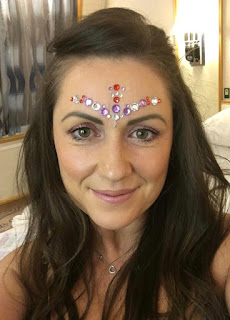Not all Orthoptists will have a purely clinical career. Research is vital to our profession, ensuring we have a current understanding of how eye conditions can effect a population and how to treat our patients effectively.
Helen is an early career research orthoptist and this is her journey so far...
"I studied for a BMedSci (Hons) Orthoptics
at The University of
Sheffield, graduating in July 2016 with a
first-class honours. I was subsequently offered a post at the University of
Leicester as a research orthoptist in August 2016. I am also working on a part
time PhD at the University of Leicester looking at phenotype-genotype
relationships with the use of hand-held optical coherence tomography (OCT) and
eye movement recordings.
We are working on many exciting projects in Leicester, however my
current job role is focussed on working with a wider team at the university and
IIIT (India) to introduce the application of artificial intelligence into
paediatric ophthalmology with the use of OCT. I was grateful to be given the
opportunity to present this work at BIPOSA conference 2019.
There is a fantastic variety of work associated with my post as a
research orthoptist, ranging from working in theatres examining paediatric
patients under general anaesthesia, to analysing clinical and genetic
information, to writing up papers with the intention of publishing. I
also work in a clinical post, therefore I usually have one day a week where I
will examine paediatric and adult patients in a hospital setting. There are
also plenty of great opportunities to develop your skills with various courses
including statistics workshops and high performance computing training.
As an orthoptist, I also have the opportunity to teach a diverse
range of individuals from international medical students to ophthalmologists in
teaching environments such as clinics, lectures, small group workshops and
one-to-one teaching. With my teaching experiences, I was subsequently awarded
an Associate Fellowship of the HEA in 2019.
Following the completion of my PhD, I aspire to undertake a
post-doctoral fellowship and develop my career towards becoming an academic
clinician. Furthermore, I am interested to continue my involvement in a variety
of teaching environments."


